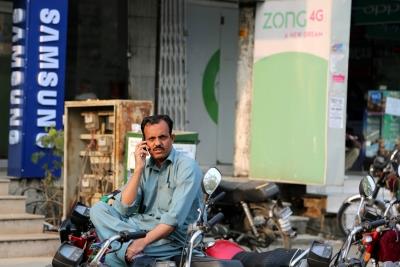
Pakistan's Drift Towards State Surveillance Stark Warning To Democracies Worldwide: Report
It noted that millions navigate their everyday lives under the gaze of Pakistani authorities with no meaningful consent, oversight, or regulation, enabled by a profitable and largely unaccountable global industry.
“Pakistan has emerged as one of the world's most closely watched societies, not by choice, but through the construction of an elaborate mass surveillance architecture that scrutinizes the digital and mobile activities of millions. This vast system-powered by a blend of local enforcement and international technology has drawn repeated warnings from rights groups and growing condemnation from global leaders, who argue it not only shreds privacy but fundamentally undermines democracy and moral norms,” a report in One Word Outlook detailed.
“Amnesty International, Human Rights Watch, and local digital rights organisations have been unambiguous - these surveillance practices violate not only Pakistan's constitution (which guarantees the right to privacy under Article 14) but also various international human rights agreements,” it detailed.
According to the report, at the centre of the outrage is the complete lack of transparency and public consent: not only are citizens mostly unaware of the extent of monitoring, but foreign suppliers rarely provide information about the scope of their contracts or the use of their technologies.
While Western companies, it said, are implicated in the development of Pakistan's surveillance apparatus, several global political leaders and watchdogs abroad criticised the drift toward digital authoritarianism.
“Surveillance without oversight is not security but tyranny,” warns a report cited widely in Western media commentary on the issue.
The report asserted that with China serving as both a blueprint and technology supplier, Western diplomats and UN-appointed digital rights experts have expressed concern, stating that“If fragile democracies like Pakistan embrace Chinese-style digital authoritarianism, it signals to other countries that repression can be imported and democracy can be bypassed”.
Despite this, it said, as of 2025, few concrete sanctions or trade restrictions have been enforced, while many Western firms remain deeply embedded in these networks.
“The calls by Amnesty International, Human Rights Watch, and other defenders of rights and democracy are urgent and unambiguous: global technology companies, foreign states, and Pakistani authorities must be held accountable for violations, and the mass violation of privacy must stop-before the darkness spreads further,” the report stressed.

Legal Disclaimer:
MENAFN provides the
information “as is” without warranty of any kind. We do not accept
any responsibility or liability for the accuracy, content, images,
videos, licenses, completeness, legality, or reliability of the information
contained in this article. If you have any complaints or copyright
issues related to this article, kindly contact the provider above.

















Comments
No comment